Background
George Berkeley was born on March 12, 1685, at his family home, Dysart Castle, near Thomastown, County Kilkenny, Ireland, the eldest son of William Berkeley, a cadet of the noble family of Berkeley. Little is known of his mother.

Dublin, Ireland
Trinity College
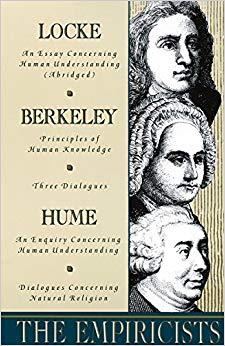
(The rise and fall of British Empiricism is philosophy's m...)
The rise and fall of British Empiricism is philosophy's most dramatic example of pushing premises to their logical - and fatal - conclusions. Born in 1690 with the appearance of Locke's Essay, Empiricism flourished as the reigning school until 1739 when Hume's Treatise strangled it with its own cinctures after a period of Berkeley's optimistic idealism. The Empiricists collects the key writings on this important philosophy, perfect for those interested in learning about this movement with just one book.
https://www.amazon.com/Empiricists-Concerning-Understanding-Principles-Knowledge/dp/0385096224/?tag=2022091-20
1960
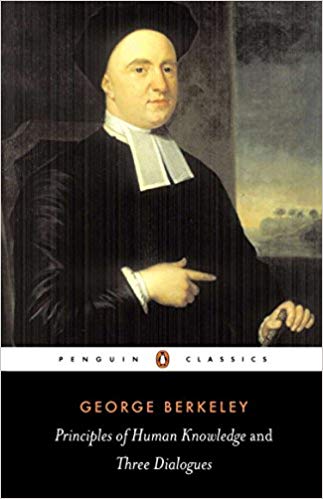
(Bishop Berkeley (1685 - 1753) was one of the great Britis...)
Bishop Berkeley (1685 - 1753) was one of the great British empirical philosophers. He believed that the existence of material objects depends on their being perceived and The Principles of Human Knowledge sets out this denial of non-mental material reality.
https://www.amazon.com/Principles-Knowledge-Dialogues-Philonous-Classics/dp/0140432930/?tag=2022091-20
1988
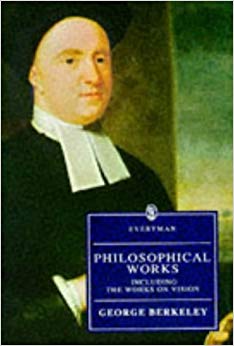
(This volume contains a selection of Berkeley's most impor...)
This volume contains a selection of Berkeley's most important philosophical works, including "Essay Towards a New Theory of Vision," "Principles of Human Knowledge," "Three Dialogues between Hylas and Philonous," and his correspondence with Dr. Samuel Johnson.
https://www.amazon.com/Philosophical-Works-Including-Everymans-Library/dp/0460873431/?tag=2022091-20
1993
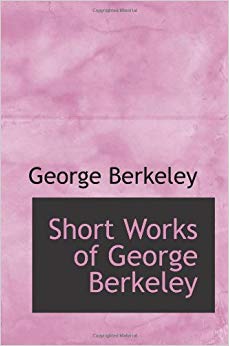
(Author’s works include: Querist; A Essay Towards a New Th...)
Author’s works include: Querist; A Essay Towards a New Theory of Vision; A Treatise Concerning the Principles of Human Knowledge
https://www.amazon.com/Short-Works-George-Berkeley/dp/0554056232/?tag=2022091-20
2007
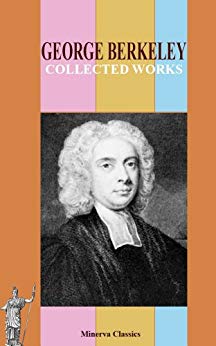
(Author’s works include: an essay towards a new theory of ...)
Author’s works include: an essay towards a new theory of vision, a treatise concerning the principles of human knowledge, three dialogues between hylas and philonous: in opposition to sceptics and atheists, the analyst: a discourse addressed to an infidel mathematician, the querist, a defence or free - thinking in mathematics
https://www.amazon.com/Collected-Works-George-Berkeley-ebook/dp/B00EBBAMDO/?tag=2022091-20
2013
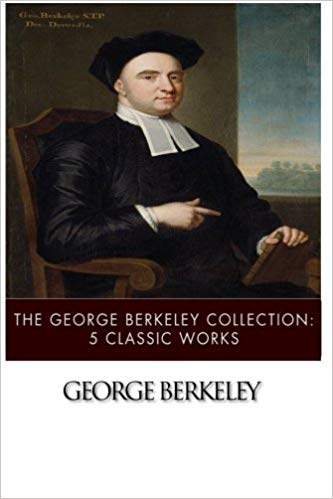
(This work contains: A Treatise Concerning the Principles ...)
This work contains: A Treatise Concerning the Principles of Human Knowledge, An Essay Towards a New Theory of Vision, Three Dialogues between Hylas and Philonous In Opposition to Sceptics and Atheists, The Querist, Containing Several Queries Proposed to the Consideration of the Public, A Defence of Free-Thinking in Mathematics
https://www.amazon.com/George-Berkeley-Collection-Classic-Works/dp/1497573793/?tag=2022091-20
2014
George Berkeley was born on March 12, 1685, at his family home, Dysart Castle, near Thomastown, County Kilkenny, Ireland, the eldest son of William Berkeley, a cadet of the noble family of Berkeley. Little is known of his mother.
Berkeley was educated at Kilkenny College and then, in 1700, at Trinity College, Dublin, where he was elected a Scholar in 1702, earning a bachelor's degree in 1704 and completing a master's degree in 1707.
In 1721, George Berkeley took Holy Orders in the Church of Ireland, earning his doctorate in divinity.
Berkeley was ordained in the Anglican Church in 1710, but he remained associated with Trinity College until 1724 (after completing his doctorate, he became a Senior Fellow in 1717, and then became a tutor and lecturer in Greek), although he was not continuously in residence.
His most widely-read works ("A Treatise Concerning the Principles of Human Knowledge" of 1710, and "Three Dialogues between Hylas and Philonous" of 1713) were published at a relatively early age, during his Trinity College years, and he spent much of the rest of his life defending them. In 1713, he went to London to arrange publication of the second of these, and there he befriended some of the intellectual lights of the time, including Jonathan Swift, Joseph Addison, Richard Steele and Alexander Pope. From 1714 to 1720, he interspersed his academic endeavors with periods of extensive travel throughout Europe.
In 1721, Berkeley took Holy Orders in the Church of Ireland, earned his doctorate in Divinity, and once again chose to remain at Trinity College, Dublin, lecturing on Divinity and Hebrew. In 1724, he was made Dean of Derry and moved away from Trinity, but in 1725 he gave up this position to pursue plans to found a seminary for training missionaries in Bermuda. After 1728, Berkeley moved to Rhode Island in America and bought Whitehall Plantation, where he wrote the bulk of "Alciphron" (his defense of Christianity against free-thinking). But, when the money for his proposed missionary college did not materialize, he moved back to London in 1732, where he was one of the original governors of the Foundling Hospital, a home for the city's abandoned children.
In 1734, Berkeley was appointed Bishop of Cloyne in Ireland, an economically poor Anglican diocese in a predominantly Roman Catholic country, where he remained for the next 18 years (and during which time he produced a work on mathematics and calculus, and two popular books on the medical benefits of pine tar). In 1752, he retired to Oxford to live with his son, George. However, but he died soon on January 14, 1753, and was buried in Christ Church Cathedral, Oxford.
George Berkeley was an Anglican bishop and philosopher, whose primary achievement was the advancement of a theory he called "immaterialism" (later referred to as "subjective idealism" by others).
Berkeley is honoured together with Joseph Butler with a feast day on the liturgical calendar of the Episcopal Church (United States) on June, 16.
Berkeley was the namesake of the city of Berkeley, California, which is perhaps most famous as the home of the prestigious university.
(This work contains: A Treatise Concerning the Principles ...)
2014(Author’s works include: an essay towards a new theory of ...)
2013(This volume contains a selection of Berkeley's most impor...)
1993(The rise and fall of British Empiricism is philosophy's m...)
1960(Author’s works include: Querist; A Essay Towards a New Th...)
2007(Bishop Berkeley (1685 - 1753) was one of the great Britis...)
1988George Berkeley developed a theory he called "immaterialism" (conceived as it was in opposition to the prevailing Materialism of the time), although it was later referred to by others as Subjective Idealism. The theory propounds the view that reality consists exclusively of minds and their ideas, and that individuals can only directly know sensations and ideas, not the objects themselves. The position that the mind is the only thing that can be known to exist (and that knowledge of anything outside the mind is unjustified) is known as Solipsism, and forms the root of the later doctrine of Phenomenalism. It can also be seen as an extreme type of Empiricism, whereby any knowledge of the empirical world is to be obtained only through direct perception.
Berkeley, recognizing the possible theological loopholes in his theory, argued that if he or another person saw a table, for example, then that table existed; however, if no one saw the table, then it could only continue to exist if it was in an infinite mind that perceives all, i.e. God. He further argued that it is God who causes us to experience physical objects by directly willing us to experience matter (thus avoiding the extra, unnecessary step of creating that matter).
So, Berkeley's view of reality might be summed up as follows: there exists an infinite spirit (God) and a multitude of finite spirits (humans), and we are in communication with God via our experience. Thus, what we take to be our whole experience of the world is analogous to God's language, God's way of talking to us, and all the laws of science and Nature we see around us are analogous to the grammar of God's language. There is, then, in this theory, no need to postulate the existence of matter at all, as all reality is effectively mental.
Quotations:
"If we admit a thing so extraordinary as the creation of this world, it should seem that we admit something strange, and odd, and new to human apprehension, beyond any other miracle whatsoever."
"The only things we perceive are our perceptions."
"In vain do we extend our view into the heavens, and pry into the entrails of the earth, in vain do we consult the writings of learned men, and trace the dark footsteps of antiquity; we need only draw the curtain of words, to behold the fairest tree of knowledge, whose fruit is excellent, and within the reach of our hand."
On August 1, 1728, George Berkeley married Anne Forster, daughter of the Lord Chief Justice of Ireland. He and Anne had four children who survived infancy: Henry, George, William and Julia, and at least two other children who died in infancy.
